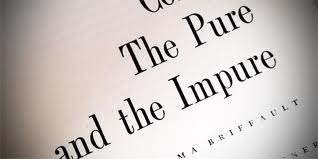
记忆方法
将“impure”分解为“im”和“pure”。记忆方法可以是:“im”代表相反或否定,而“pure”代表纯净。因此,“impure”可以理解为“不纯净的”或者“混合的”,这样通过对比纯净与不纯净,帮助记忆这个单词的含义。
以上内容由AI生成, 仅供参考和借鉴
中文词源
impure 不纯的,有杂质的
im-,不,非,pure,纯的。即不纯的,有杂质的。
英语词源
- impure (adj.)
- mid-15c., from Middle French impur (13c.), from Latin impurus "unclean, filthy, foul," from assimilated form of in- "not, opposite of" (see in- (1)) + purus "pure" (see pure). As a noun from 1784. Related: Impurely.
权威例句
- 1. Impure drinking water is a cause of disease.
- 不洁的饮用水是引发疾病的一个原因.
- 2. Impure novels have brought and are bringing much misery on the world.
- 不洁的小说已经给世界带来不幸,还将带来更多的不幸.
- 3. The air of a big city is often impure.
- 大城市的空气往往是污浊的.
- 4. You've got a dirty mind , ie You have impure thoughts.
- 你满脑子下流事.
- 5. Many of the deposits are too small, too impure.
- 许多蕴藏量太小, 质地太不纯.